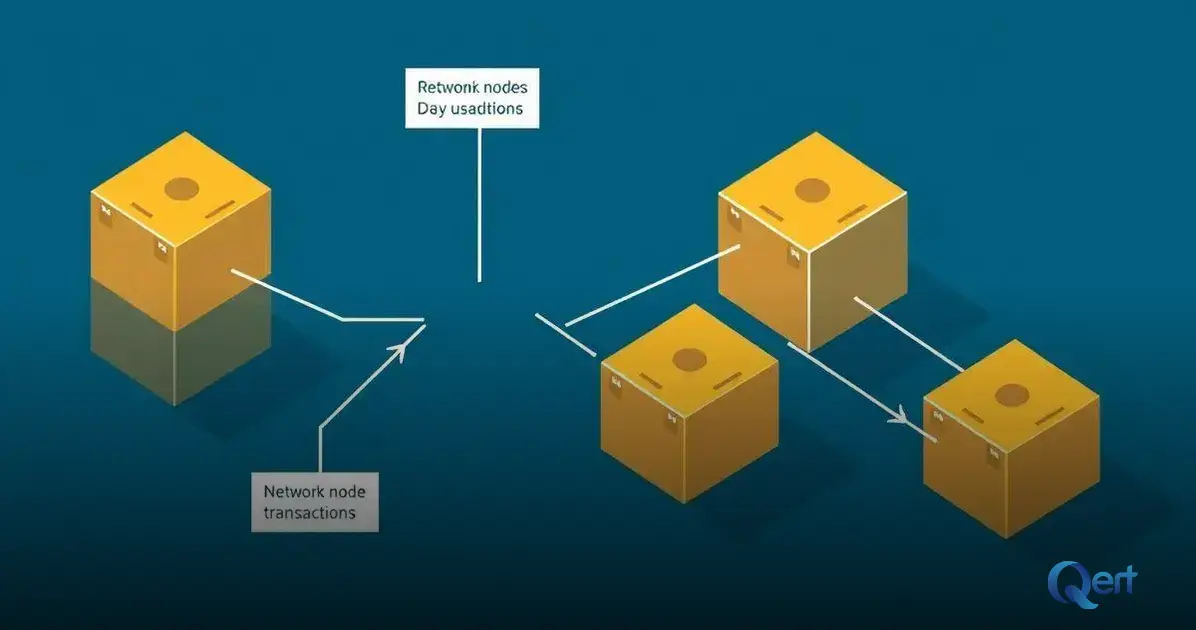ADVERTISEMENT
Blockchain technology is transforming finance, supply chains, and beyond. It enhances security, transparency, and efficiency in processes.
With its decentralized nature, blockchain technology eliminates the need for intermediaries, reducing costs and risks.
Discover how blockchain technology can impact your life and business. Keep reading to uncover fascinating insights!
Understanding Blockchain Technology
Understanding blockchain technology starts with knowing that it is a digital ledger system. This technology records information in a way that makes it almost impossible to change or hack. Each set of data is stored in ‘blocks’ that are linked together, creating a ‘chain’ of information.
One key feature of blockchain technology is its decentralization. Unlike traditional systems where a single entity controls data, blockchain allows many users to have access to the same information. This means everyone can see the transactions, making everything more transparent.
Blockchain technology not only ensures security but also speeds up processes. For example, in banking, transactions can happen almost instantly without needing a middleman. Understanding blockchain helps us see how it can lead to a safer future for online transactions.
Benefits of Blockchain in Various Industries
Blockchain technology offers many benefits across various industries. In finance, it helps secure transactions and reduces fraud. This makes sending money easier and safer. Businesses and customers can feel confident when they make online payments.
In healthcare, blockchain can keep patient records safe and accessible. Doctors can quickly share information while ensuring privacy. This also helps track medicine supplies, reducing counterfeiting and ensuring products are genuine.
Supply chain management also sees improvements with blockchain. Companies can monitor goods as they move from one place to another. This helps prevent losses and ensures products arrive on time. Overall, blockchain technology is making processes better and more efficient across different fields.
How Blockchain Technology Works

Blockchain technology works by storing information in a series of connected blocks. Each block contains data, a timestamp, and a unique code called a hash. When a block is filled, it gets linked to the previous block, forming a chain. This makes it very hard for anyone to change the information without everyone knowing.
When a transaction occurs, it is first verified by many users, or nodes, in the network. Once confirmed, the transaction gets added to the next block. This process is like a team of people checking facts before writing them down. This way, accuracy and security are ensured.
Because the blockchain is decentralized, no single person controls it. Instead, everyone with access sees the same information. This transparency boosts trust among users. By understanding how blockchain technology works, we can see how it creates a safer environment for transactions.
Challenges Facing Blockchain Adoption
While blockchain technology has many benefits, it also faces several challenges in adoption. One of the main issues is the lack of understanding among people and businesses. Many are unsure how it works or how it can help them. This confusion can lead to hesitation in using blockchain.
Another challenge is the regulatory environment. Different countries have different rules regarding blockchain and cryptocurrencies. These regulations can make it hard for companies to adopt the technology. Businesses want to be sure they comply with the law before investing in new systems.
Lastly, scalability is a major issue. While blockchain is secure, it can sometimes be slow, especially when handling many transactions at once. This can limit its use in industries that need fast processing. By addressing these challenges, industry leaders can help promote wider use of blockchain technology.
Future Trends in Blockchain Technology
Future trends in blockchain technology are likely to focus on greater integration with industries like finance, healthcare, and supply chains. Companies are starting to recognize the benefits of using blockchain for faster, safer transactions. This means we can expect more businesses to adopt it as a part of their everyday operations.
Another trend is the rise of Decentralized Finance (DeFi). DeFi uses blockchain to create financial services without traditional banks. This opens up new opportunities for people, giving them access to loans, savings, and transactions at lower costs and risks.
Moreover, the use of blockchain for digital identity verification is gaining popularity. With the rise of online services, ensuring secure online identities is crucial. Blockchain technology could provide a safe way to verify who we are online, making it easier and safer to access various services in the future.
Real-World Applications of Blockchain

Blockchain technology has many real-world applications that demonstrate its power. One of the most well-known uses is in cryptocurrency, like Bitcoin and Ethereum. These digital currencies allow people to make fast and secure transactions without needing banks. This changes how we think about money and payments.
Another important application is in supply chain management. Companies use blockchain to track products from their origin to the store. This ensures goods are genuine and not tampered with. Shoppers can trust what they buy, and companies can reduce fraud.
Additionally, blockchain is making waves in voting systems. Some countries are exploring ways to use it for secure and fair elections. By allowing votes to be recorded on a blockchain, officials can ensure each vote is counted accurately and can be trusted. This use shows how blockchain technology can improve civic processes.
Blockchain technology is a game changer for digital transactions. It offers a new way to securely record and share information. With its decentralized system, users can manage their own data without relying on a single authority. This gives people more control and security over their transactions.
One of the biggest advantages of blockchain is its transparency. Every transaction is recorded in a public ledger that anyone can access. This means that fraud is much harder to commit, as all actions can be tracked and verified. Businesses can gain trust from customers, knowing their transactions are safe.
Moreover, blockchain can make transactions faster and cheaper. Traditional banking systems often take days and charge high fees for transactions. Blockchain can process transactions in minutes with lower costs, especially for international transfers. This efficiency highlights how blockchain technology can revolutionize the way we conduct business.
Learn essential Online Safety Tips to protect yourself in the digital world. Check out our article for practical advice on staying secure online.







